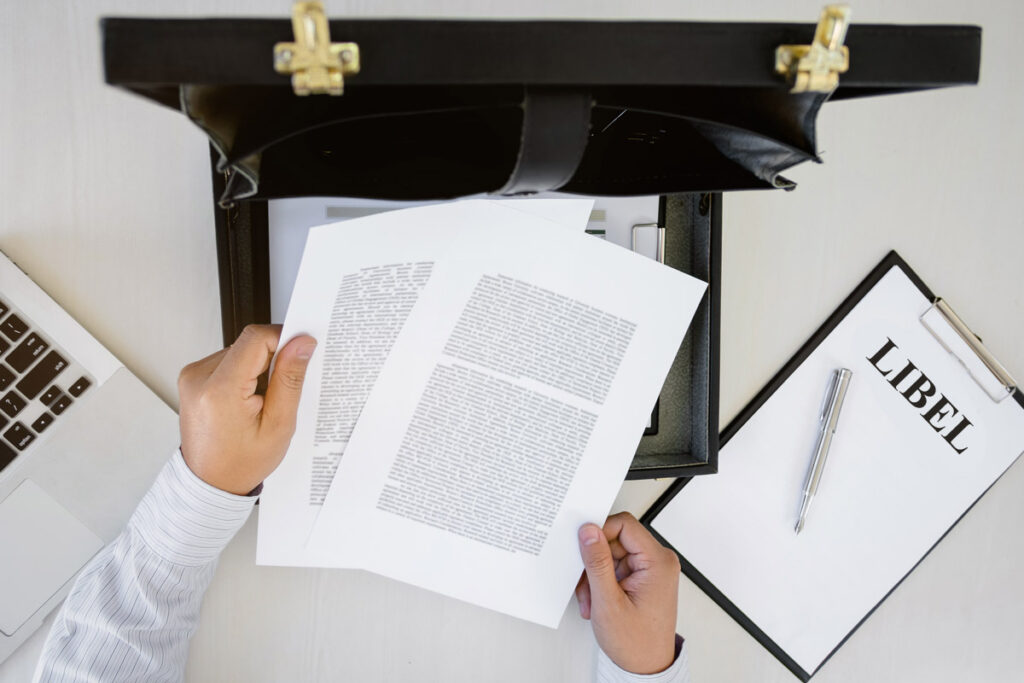In today’s celebrity-driven media world, defamation lawsuits are a common occurrence, particularly when public figures feel their reputations have been unfairly damaged by the press. Recently, Justin Baldoni, the director and co-star of It Ends With Us, filed a high-profile libel lawsuit against the New York Times, seeking $250 million in damages. The lawsuit centers on an article that reported on allegations of misconduct made by Blake Lively, Baldoni’s co-star. This case presents a unique opportunity to examine the legal standards for libel, especially when it involves public figures.
What is Libel?
Libel is a form of defamation. Defamation occurs when a person or entity makes a false statement to a third party, either deliberately or negligently, and causes harm. Libel, specifically, refers to a type of defamation in which defamatory statements are made in writing, such as in articles published by the New York Times. Other notable forms of defamation include slander (defamation that is spoken), commercial defamation (false statements made about a business that damages its reputation), and defamation per se (defamation so inherently damaging such that damages need not be proven). In a libel case, a plaintiff must prove that the written statement was demonstrably false, published to third parties, and harmful to that plaintiff’s reputation.
The Legal Standard for Libel Involving Public Figures
While the legal standard for libel sets a high bar for anyone, that bar is an even higher bar for “public figures.” Specifically, a plaintiff who is a public figure must demonstrate that a publisher like the The New York Times published the statement with “actual malice,” meaning that the a publication, either knowingly or recklessly, published a statement that was false about that public figure.
The Baldoni vs. The New York Times Case
In his lawsuit, Baldoni, a famous actor and director, claims that The New York Times falsely accused him and his public relations team of orchestrating a smear campaign against Blake Lively. According to Baldoni’s legal team, the article misrepresented events and relied heavily on a narrative from Lively that painted Baldoni as retaliating against her for speaking out about alleged sexual harassment during the filming of It Ends With Us. Importantly, Baldoni’s case also alleges that The New York Times deliberately omitted evidence to the contrary. Thus, to prove “actual malice” Baldoni would need evidence showing that The New York Times published the article while knowing, or recklessly disregarding, that the claims about Baldoni were false.
The New York Times, on the other hand, defends its reporting, stating that the article was based on thousands of pages of original documents, including text messages and emails obtained through subpoena. The newspaper asserts that its reporting was thorough, responsible, and factually accurate.
The Balance Between Defamation and Press Freedom
Defamation lawsuits involving public figures like Baldoni are complicated because they require courts to balance the protection of individuals’ reputations with the media’s First Amendment rights to free speech. Public figures, by virtue of their prominence, are expected to endure some level of scrutiny and criticism. However, that does not mean they should be subject to false or malicious reporting.
Conclusion
The lawsuit between Justin Baldoni and The New York Times highlights the complexities of libel law when public figures are involved. As this case unfolds, it will provide valuable insights into the delicate balance between protecting an individual’s reputation and safeguarding the press’s role in holding the powerful accountable.
If you or your business have been harmed by defamation, commercial defamation, or libel, please contact Porter Thomas Grabell & Baumwoll, P.C. at (210) 569-5959 for legal assistance.
